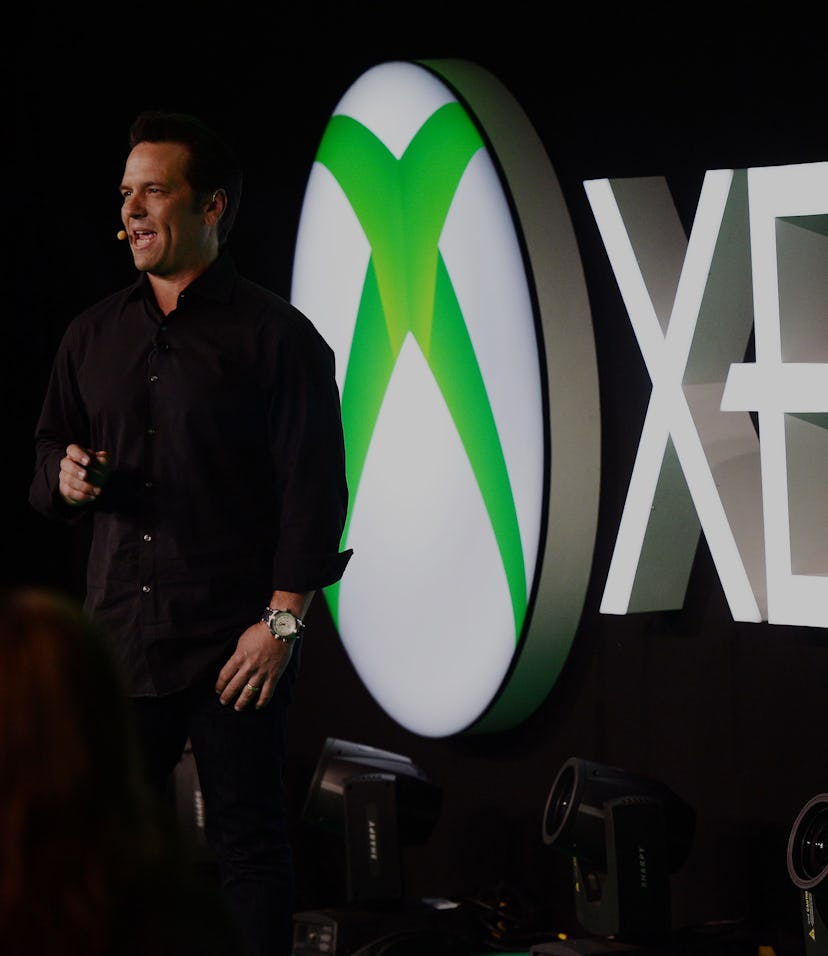Gaming
The head of Xbox wants a universal ban list for bad gamers
Phil Spencer said that cross-platform bans is something he would "love" to be able to do.

Every gamer knows that gaming culture can be a toxic place. When anonymous incels utter slurs or activate cheats, victims are left with few options. As it stands, the average game is forced to simply report harassers and cheaters and move on with their lives — but the head of Xbox Gaming, Phil Spencer, wants to see more done to address these problems.
What was said — In a recent interview with the New York Times, Spencer said that a cross-platform “banned user list” could help combat toxicity and cheating in video games. “Something I would love us to be able to do — this is a hard one as an industry — is when somebody gets banned in one of our networks, is there a way for us to ban them across other networks?” he hypothesized.
What’s been done — Activision has already implemented something similar, as GameSpot pointed out that the Call of Duty games have a multi-platform ban strategy in place. If you cheat in one COD game, you’ll be preemptively banned from others. And Microsoft already uses some AI techniques to “monitor the sentiment of a conversation” on Xbox to track harassment, a strategy which some might argue is invasive.
The benefits — But Spencer is talking about a cross-platform ban list. Game developers and publishers would have to work together to transmit data about who is cheating or being toxic and is being banned from each of their games. If this information was sent automatically, it would alleviate some of the legwork at each company.
For example, if Xbox proved that a user was toxic and spewing hate speech on its platform, Sony could preemptively ban that person across its games. While this might seem extreme to some, it would actually be good considering that the punishment for hate speech and harassment in games is currently quite low. Right now, spewing hate is a low-risk activity in most games.
Chat bans are nothing — Here’s why: Typically, if one is toxic in a game and is reported by multiple people, they will simply be chat-banned — not fully banned — from said game. This means in that one game, they can’t talk to teammates anymore, but they can still play. More severe punishments across multiple games and platforms would make people think twice before harassing others.
But public knowledge of a cross-platform “ban list” could also lead to an uptick in false reports. This is because some toxic gamers threaten victims by saying immature things like, “I’m reporting you,” even when they were the perpetrators of toxicity.
To solve this, game devs will likely have to also issue some (less severe) punishments for false reporting. Clogging report systems with false accusations could cause big problems if a victim is wrongly banned across multiple platforms.
Workarounds abound — Currently, game companies don’t do enough about cheaters, either. Some AAA studios are reluctant to liberally ban hardware, so most cheaters only receive IP bans which are easily overcome with VPN use.
Even those who do hardware (HWID) bans — like Epic Games, Riot Games and Respawn Entertainment — still face an onslaught of cheaters. Some cheaters have figured out how to circumvent HWID bans by moving their RAM sticks around, swapping motherboards and using “spoofers” to change their MAC addresses.
If companies worked together on more than just a ban list to develop more sophisticated user-banning technology, cheaters might become easier to stop before the damage starts.
The drawbacks — Besides the obvious possibility of a wrongful or accidental multi-platform ban, there are other downsides to the list Spencer is suggesting. In some cases, companies may not universally agree on what constitutes as harassment.
One game developer might have more progressive views than another on certain issues and have a different stance on the use of certain words, for example. So developers would have to come to a consensus on their policies surrounding what constitutes toxicity. They’ll also have to decide where they draw the line for just a one-platform ban versus an all-platform ban.
Another concern some gamers might have is the issue of free speech. While free speech is an American right, private companies also have the right to rule their platforms as they wish. Some could argue that a universal ban list is a form of effective corporate censorship.
In reality, online video games themselves are not a right, but a privilege — one that can be revoked if you don’t respect the rules of the game.
This isn’t the first time Spencer has spoken out against harassment in gaming. In 2019, he wrote a blog post asserting that he wants everyone to feel safe while gaming.
“Gaming is for everyone. No one group ‘owns’ gaming,” Spencer said.